




- BRNN
- BRI News
- BRNN News
- Database
Official Documents Polices and Regulations
Inter-government Documents International Cooperation BRI Countries
Business Guide Economic Data BRI Data
Trade
Investment Projects Latest projects
Cases - Content Pool
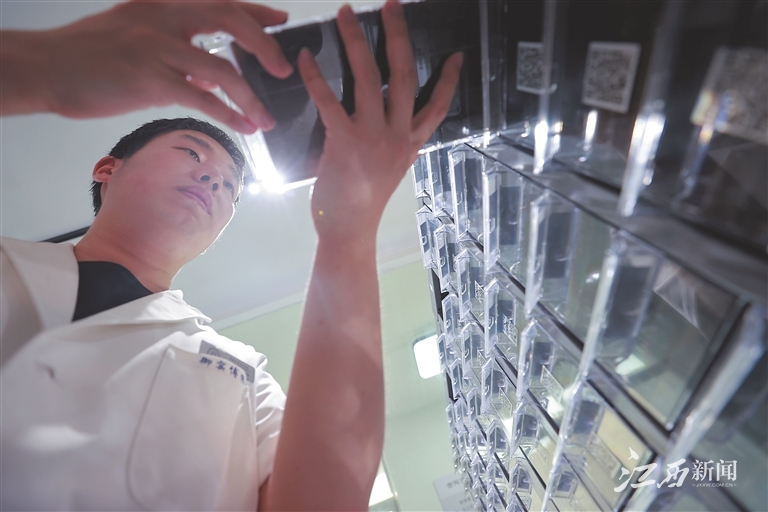
Cross-section specimens of ceramic fragments produced in Jingdezhen, east China's Jiangxi Province during the Qing Dynasty (1644-1911) and unearthed from an ancient shipwreck are put in storage by a staff member in the world's first "gene bank" of ancient ceramics in the city, July 12, 2023. (Photo/jxxw.com.cn)
The world's first "gene bank" of ancient ceramics in Jingdezhen, a world-famous porcelain capital in east China's Jiangxi Province, completed the preparation of cross-section specimens of ceramic fragments that were produced in the city during the Qing Dynasty (1644-1911) and unearthed from an ancient shipwreck on July 12.
This means the gene bank has entered the stage of analyzing the "gene" information of these specimens.
On June 10 when the gene bank marked its first anniversary, it received 12 specimens of ancient ceramics from the Yangtze River Estuary No. 2 Ancient Vessel, which was lifted out of the waters off Hengsha island in Shanghai's Chongming district. By then, the gene bank had collected 2,412 pieces of "gene" specimens of ancient ceramics, and traced nearly 300,000 pieces of information.
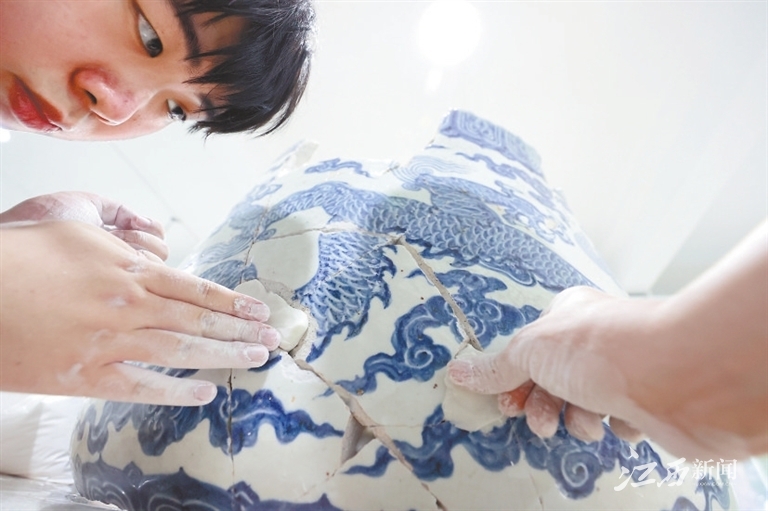
Staff members restore a piece of ancient ceramic work in Jingdezhen city, east China's Jiangxi Province, June 19, 2023. (Photo/jxxw.com.cn)
The gene bank was built on June 11, 2022 to trace information such as the body, glaze, pigment, and craftsmanship of more than 20 million pieces of ancient ceramic fragments unearthed in Jingdezhen.
Researchers make "gene" specimens of ancient ceramics in physical and digital forms, said Weng Yanjun, head of the gene bank. These "gene" specimens help researchers decode the origin and development of the ancient ceramics civilization.
Over more than a year, relevant technical standards and operations mechanisms for the building of the gene bank have been gradually improved. The gene bank launched a database of its first phase and shared research results with the world.
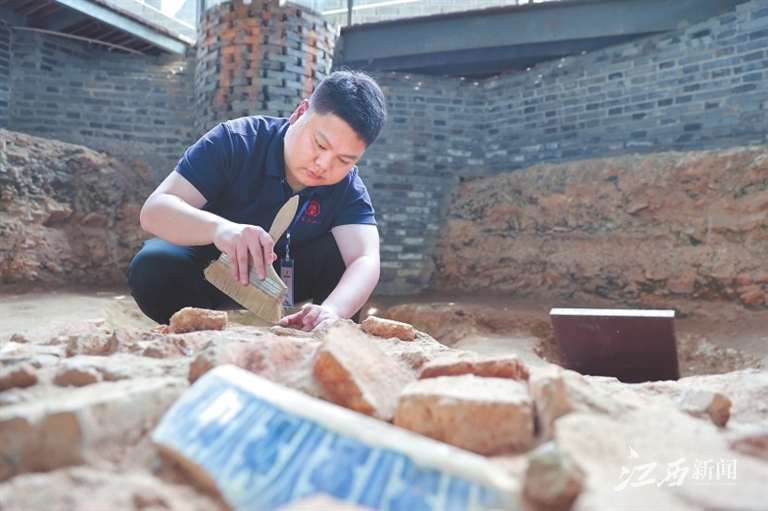
A staff member works on the ruins of the imperial kiln site in Jingdezhen city, east China's Jiangxi Province, July 13, 2023. (Photo/jxxw.com.cn)
A robotic system for making "gene" specimens of ancient ceramics jointly developed by the Jingdezhen Imperial Kiln Museum and the Academy for Engineering and Technology under Fudan University, the first of its kind in the world, was put into use in the gene bank this year, significantly improving the efficiency of making "gene" specimens.
Based on the gene bank's research results, the Jingdezhen Imperial Kiln Museum staged a special exhibition of blue and white porcelain and rolled out cultural and creative products themed on ceramics, which were well received by customers.
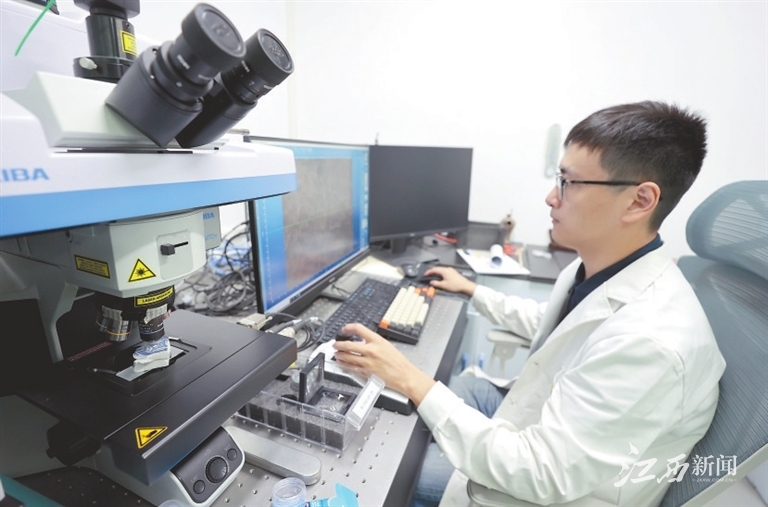
A staff member uses a Raman spectrometer to analyze the chemical composition of a piece of ancient ceramics, June 19, 2023. (Photo/jxxw.com.cn)

Visitors attend a special exhibition of blue and white porcelain based on the research results of the gene bank of ancient ceramics in Jingdezhen city, east China's Jiangxi Province, July 12, 2023. (Photo/jxxw.com.cn)
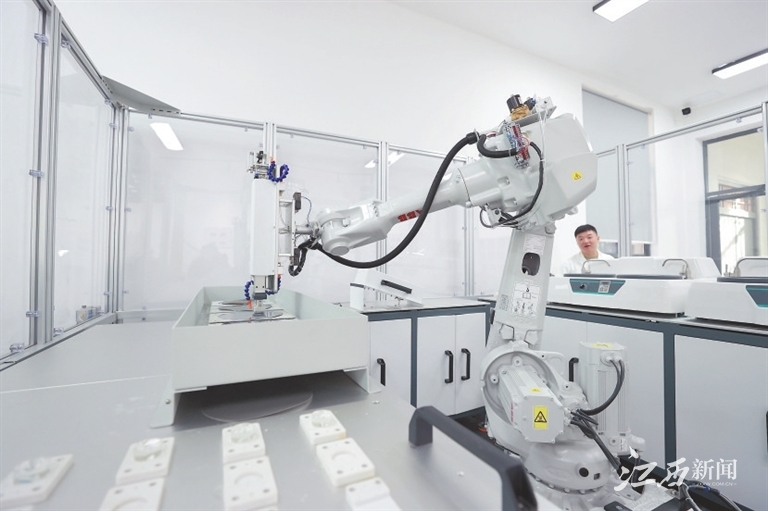
A robot makes "gene" specimens of ancient ceramics, July 12, 2023. (Photo/jxxw.com.cn)
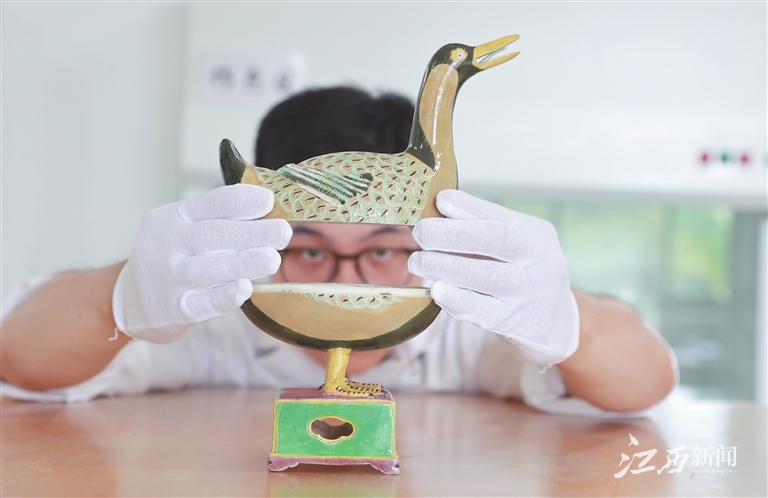
A staff member checks a ceramic work from the Ming Dynasty (1368-1644) jointly restored by staff members from the Palace Museum and the gene bank of ancient ceramics in Jingdezhen city, east China's Jiangxi Province on July 13, 2023. (Photo/jxxw.com.cn)
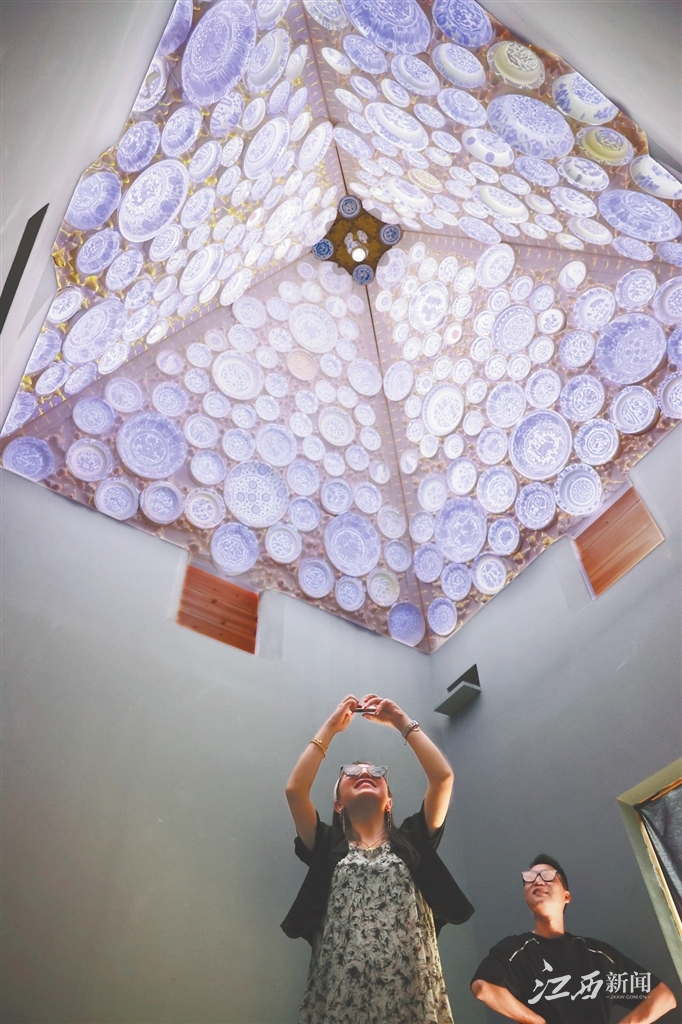
A visitor takes photos of a dome featuring the "gene" information of blue and white porcelain at a scenic area in Jingdezhen city, east China's Jiangxi Province, July 13, 2023. (Photo/jxxw.com.cn)
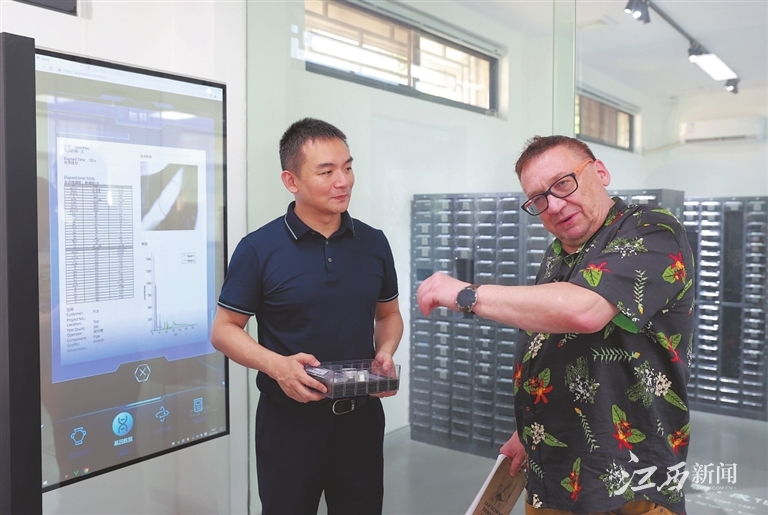
Weng Yanjun (left), head of the gene bank of ancient ceramics in Jingdezhen, east China's Jiangxi Province, introduces the gene bank's specimens to a Polish porcelain lover, July 12, 2023. (Photo/jxxw.com.cn)

Tel:86-10-65368972, 86-10-65369967